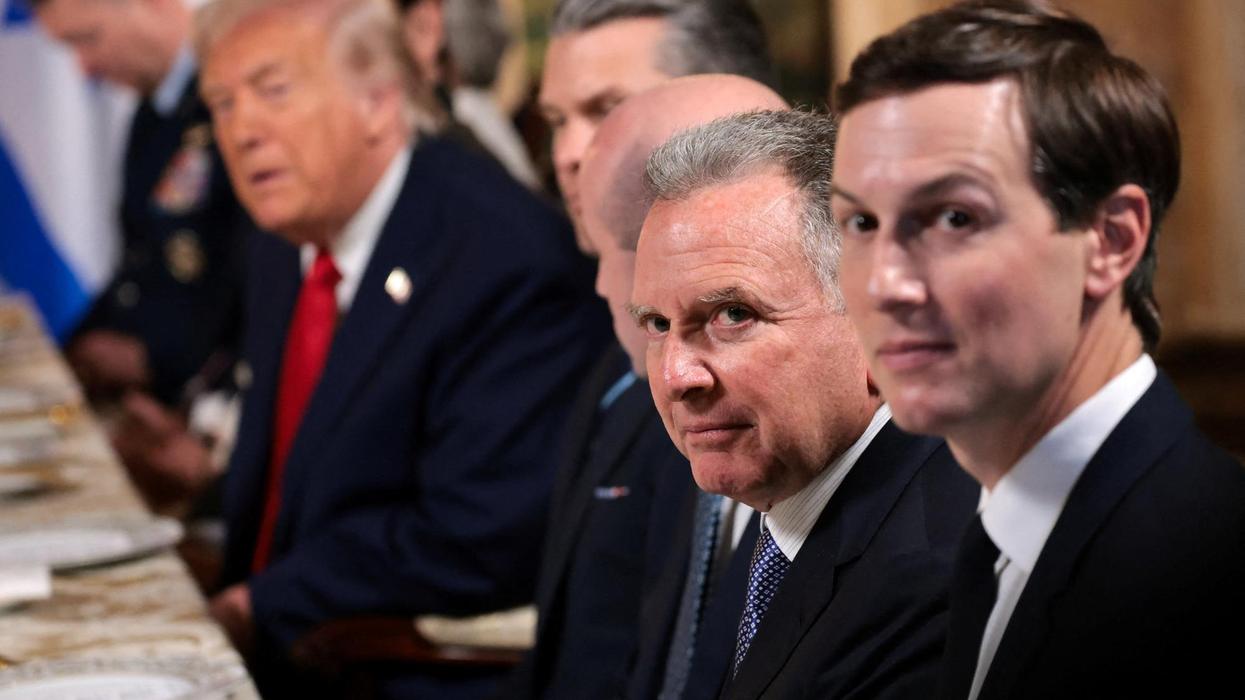Three years after Saudi government agents murdered journalist and regime critic Jamal Khashoggi in their consulate in Istanbul on the orders of Crown Prince Mohammed bin Salman, the U.S. has yet to hold the Saudi leadership accountable for that crime and the many others that their forces and proxies have committed in Yemen.
We were reminded of this as Biden’s national security advisor, Jake Sullivan, traveled to Saudi Arabia on Monday and met with bin Salman at Neom. While Biden is not as enthusiastic about the Saudi relationship as his predecessor was, his promised “recalibration” of the relationship has been minor and the changes have been mostly cosmetic.
Far from treating the Saudi government as a “pariah,” as Biden pledged to do when he was a candidate, the Biden administration has been slowly and quietly strengthening ties with Riyadh, as well as giving a pass to other U.S. client governments in Egypt and the United Arab Emirates for their own abuses. Apart from some early lip service about ending U.S. support for Saudi “offensive operations” in Yemen, Biden has made remarkably few changes to the U.S.-Saudi relationship and has done nothing to make good on his repeated claims to put human rights at the center of his foreign policy. This about-face is not all that surprising, but it should be identified as the unacceptable hypocrisy that it is.
The administration might argue that it is necessary to meet the crown prince to make progress on certain issues, but the timing of Sullivan’s meeting shortly before the anniversary of Khashoggi’s assassination could hardly have been worse. That is why Democracy in the Arab World Now (DAWN), the democracy and human rights organization founded by Khashoggi, condemned the meeting on Twitter: “Days away from the three-year anniversary of Jamal Khashoggi’s murder, the White House announced a high-level visit to Riyadh. @jakesullivan and Brett McGurk should not meet with the architects of the plot that killed him.” Between the decision earlier this year not to sanction the crown prince for ordering the murder and the Sullivan meeting this week, the Biden administration appears to be letting Mohammed bin Salman off the hook when it ought to be applying greater pressure.
The meeting comes on the heels, too, of months of failing to put pressure on the Saudi coalition to lift the blockade on Yemen as the threat of widespread famine in the country increases. There have been reports that Sullivan discussed the conflict in Yemen with Mohammed bin Salman, and at least one suggested that the goal of the meeting was to get Saudi agreement to a ceasefire. It would be a welcome development if the administration could get a serious Saudi commitment to a ceasefire, but in the absence of meaningful pressure the crown prince is unlikely to do as Sullivan asks.
As my colleague Annelle Sheline said earlier this week, Mohammed bin Salman is more likely to resist entreaties to end the fighting and insist that the U.S. continue its support. The Saudi government won’t fully cooperate unless it believes that the relationship with the United States is on the line, and the Biden administration has given them no reason to fear that it is.
These governments have assumed that they can act with impunity because Washington refuses to penalize them no matter what they do. Even though Emirati officials at the highest level were involved in running the Tom Barrack influence campaign inside the Trump administration, there have been no practical consequences for the UAE or the individual officials, including crown prince Mohammed bin Zayed, for their extensive interference in our political system. The UAE is also responsible for many war crimes in both Libya and Yemen, many of which were committed using U.S.-made weapons. By all rights, the UAE shouldn’t receive any military assistance from now on. Because of the UAE’s normalization with Israel, however, their government has instead been rewarded with a massive arms deal that the Biden administration has allowed to go ahead. Sullivan’s visit to the UAE this week is another sign that Biden is settling for business as usual.
Biden has also given the Sissi dictatorship in Egypt similar kid-glove treatment. The U.S. withheld only a portion of $300 million in military aid that was supposed to be conditioned on improvements in human rights and permitted Egypt to receive the rest despite ample evidence of Sisi’s intensifying repression and abuse of political opponents. A group of human rights organizations condemned the administration’s decision in mid-September, and they noted in their statement that Biden’s position on military aid to Egypt was actually weaker than Trump’s. The groups stated, “By paving the way to provide the full $300 million, the administration gives license to the Egyptian government to continue perpetrating egregious human rights violations without fear of repercussions.” The Egypt Human Rights Caucus in Congress also criticized the decision, saying that it “violates the spirit and intent of the law.” In the countries where the U.S. has some leverage that it might use to pressure client governments to make even modest improvements, the Biden administration has consistently chosen not to use its influence.
Until these states face tangible costs in their relationships with the United States, they have little incentive to provide the cooperation the U.S. wants in curtailing domestic abuses, ending the war on Yemen, and de-escalating regional tensions. Pressuring clients is not a cure-all, and it won’t always get the U.S. what it seeks, but we know that U.S. enabling and “reassurance” have encouraged them in their worst behavior and implicated our government in it. Providing them with more weapons and support has served only to make them demand still more while they ignore U.S. appeals to change their behavior.
U.S. relationships with these authoritarian client states are not ends in themselves, and they should not be treated as such. As these clients have become greater liabilities in recent years, the U.S. ought to be reevaluating how much support to provide to them and how much leeway it should be willing to give them. Our government needs to remember that these relationships are much more important to the clients than they are to the United States, and it should be willing to use its influence with them without fear of “losing” them to a rival.
If Biden wants to extricate the U.S. from the region’s conflicts and follow through on his human rights rhetoric, he will need to take a firmer line with reckless, despotic client states. That should start with holding Saudi Arabia and the UAE accountable for their destructive and destabilizing actions and halting all military contracts with them for the foreseeable future. That is the message that authoritarian clients need to hear, and it is the one that is most likely to get their attention.
















